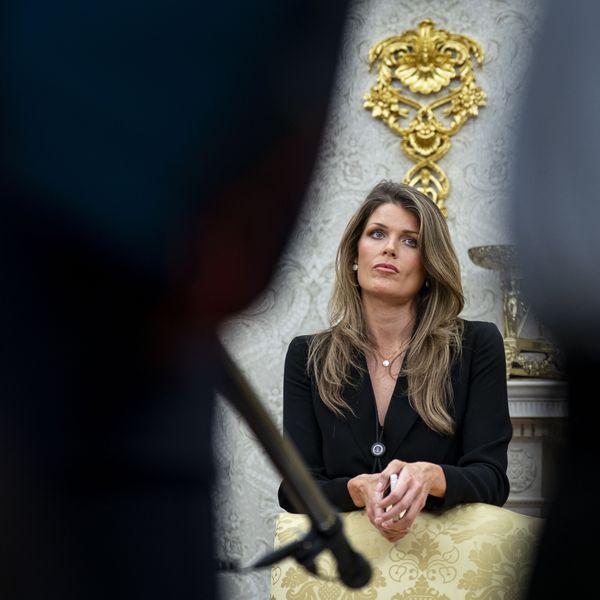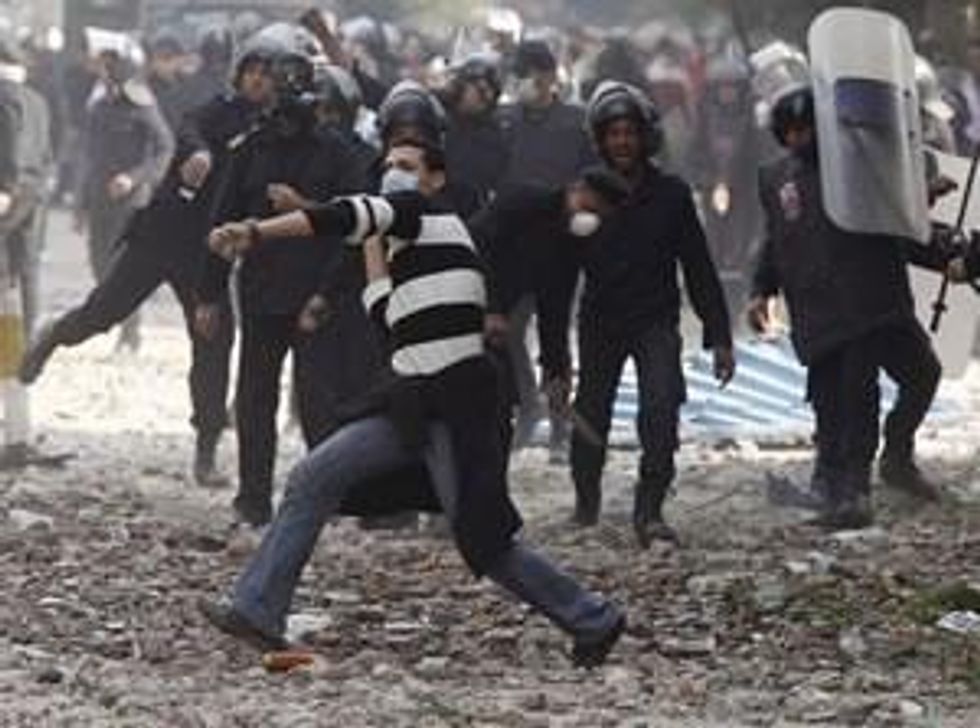Egypt, whose revolution in February, was a landmark of the Arab Spring, is looking more and more like, well, Syria.
Nearly two dozen people have been killed and 1,500 wounded in several days of clashes between Egyptian security forces and protesters, not in
Tahrir Square but elsewhere in Cairo, along with Alexandria, Suez, and other Egyptian cities.
From Cairo, the Times reports today:
"Battles raged throughout the night, with gunfire echoing through streets choked with tear gas and illuminated by scattered fires. Three bodies wrapped in blankets were seen being carried away and witnesses said the bodies were those of protesters hit by live ammunition."
Egypt, meet Syria. It's staggeringly ironic that the Cairo-based Arab League is taking action to expel and sanction Syria, while right under its nose the Egyptian military is slaughtering demonstrators. (Not to mention the fact that the Arab League is dominated by the ultra-reactionary autocracies in the Gulf, including Saudi Arabia and Qatar, who've been deeply involved in helping to overthrow Libya's Muammar Qaddafi and Syria's Bashar Assad while propping up the ruling military council in Egypt.)
It's not easy to take sides, however, in part because in Egypt the choice is increasingly between the military and the Muslim Brotherhood.
By all accounts, progressive and secular parties in Egypt are conflicted between their anger at the military's refusal to cede power to the revolution and their wariness over the Muslim Brotherhood's reactionary muscle. Earlier this year, the military and the Muslim Brothers had a tacit understanding of sorts that marginalized the secular and left-leaning groups that sparked the revolution in January, including the April 6 Movement, We Are All Khalid Said, and others. Now the Brotherhood is flexing its muscle, sending tens of thousands of people into Tahrir Square on Friday, joined by ultra-radical Salafi Islamists, and the religious parties seem poised to win big in the November 28 elections for parliament.
Unlike in Tunisia, where the religious Al Nahda party is constrained by Tunisia's cosmopolitan and European-influenced middle class the intellectuals, in Egypt the Muslim Brotherhood is far more conservative. (The Brotherhood was founded in Egypt in 1928, and for at least the next four decades it was a violent, terrorist-inclined secret society that twice tried to assassinate Gamal Abdel Nasser, Egypt's nationalist leader. Back then, several of its top officials were closely tied to the British and American intelligence services, who opposed Nasser.) For progressives in Egypt, who lack the organized muscle of the Brothers, a alliance of sorts with the Brotherhood is needed to compel the army to give up its control of the government once elections are held. But it's a worrisome deal with the devil.



